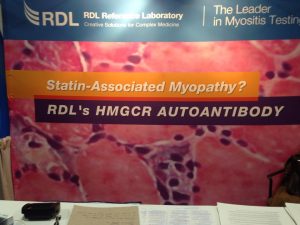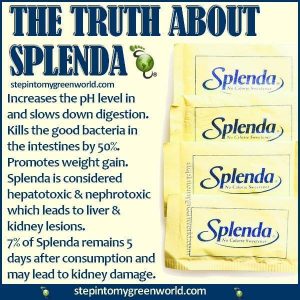
In the 15 years I’ve been doing natural health research, I’ve found plenty of things to question. But I’ve found far more truth than fiction. There’s just one problem…
These truths don’t sit well with mainstream medicine.
There are plenty of popular medical myths perpetuated by Big Medicine and Big Pharma that should be put to rest. Don’t take my word for it – find out for yourself. There’s plenty of research to help pull the rug out from under these myths.
Here are five of them:
1. Fat is bad
The average American is finally catching on to this one. We’ve been told for so long that fats are bad for you, (olive oil usually got a pass) cause heart attacks and make you fat.
Not true.
Check out this article Eating Healthy Fat Can Keep You Thin.
I just received my newsletter from Harvard School of Public Health. I was excited to see an article that said it’s time to end the low-fat myth. What really matters, it said, isn’t the calories from the fat you eat it’s the type of fat you eat.
Then my excitement quickly turned to disappointment. In true corporate-funded fashion, they recommended soy and canola oil as healthy fats.
Big fail!
They did say eat olive oil, but everyone knows that.
These fats are bad for you for so many reasons. First, soy oil is a goitrogen. Dr. Mercola says soybean oil (even organic) interferes with the synthesis of your thyroid hormones and with iodine metabolism.
It’s high in phytic acid which prevents the absorption of minerals. Soy oil is loaded with GMOs, goes rancid quickly and it’s high in omega-6. Most of us get way too much omega-6 fatty acids in our diet already throwing off a healthy balance.
I’ve linked to a number of good articles below testifying to the health benefits of saturated fat. But here are a few critical things you need to know. From Everyone Was Wrong: Saturated Fat is Good For You:
- A 2010 evaluation of 21 studies and 350,000 subjects, showed saturated fat was not associated with an increased risk of heart disease. (Emphasis mine.)
- Fact: In the last 30 years, Americans have lowered their fat consumption by 10 percent, while obesity has doubled.
The problem is inflammation from our bad diets! Â End of subject. Need more proof?
Read this: World Renowned Heart Surgeon Speaks Out on What Really Causes Heart Disease.
2. Elevated cholesterol will cause heart disease or heart attack
Have you been told your cholesterol is too high? Did your doctor put you on a statin?
The word is out. Statin drugs are not the miracle cure for preventing heart attacks. In fact, more research is showing that statin drugs are downright dangerous. More importantly, it’s been shown over and over, that elevated cholesterol is not an indicator for future heart attack. 50% of heart attacks happen in people with normal cholesterol levels!
Your body needs cholesterol – especially as you age.
Here are some of the risk of statins:Â Â Â Â Â Â Â Â Â Â Â Â Â Â Â Â Â Â Â Â Â Â Â Â Â Â Â Â Â Â Â Â Â Â Â Â Â Â Â Â Â Â Â Â Â Â Â Â Â Â Â Â Â Â Â Â Â Â Â Â Â 
- They may increase a woman’s risk for thyroid cancer. Read more here from medpage Today.
- They can increase a woman’s risk for type 2 diabetes by 48%! Learn more  here from Dr. David Perlmutter, MD, of Wheat Belly Fame.
- Statin drugs cause muscle and nerve damage – (studies cited from GreenMedInfo.com).
- May cause sexual dysfunction.
Have you noticed how many more erectile dysfunction drugs for everyday use are now on the market? This article from The People’s Pharmacy states. “Spontaneous complaints of ED were 10 times more common among men taking statins than among those taking other drugs.”
- Statin drugs should never be taken during pregnancy as they are a Category X medication. (Source: Drugs.com)
Check out this infographic for the real stats on statin drugs.
Note: There are some rare situations where a cholesterol lowering drug is necessary, but for most, the facts speak for themselves.
Watch the outstanding documentary Statin Nation to learn:
- People with high cholesterol tend to live longer
- People with heart disease tend to have low levels of cholesterol
- Cholesterol-lowering of a population does not reduce the rate of heart disease (emphasis mine)
Want to avoid a heart attack? Talk to your healthcare practitioner first – Then change your diet, exercise, and start with a good fish oil.
Convinced yet? Let’s bust that myth, now!
3. Salt is bad for you
Disclaimer: I do believe highly processed table salt is bad for you. Sorry Morton Salt®. You can get iodine from other food sources or supplements. Processed foods that contain high levels of sodium, should always be avoided.
Having said that, your body needs salt!
Chris Kresser, MS, L.Ac, Â explains that Sodium is a vital nutrient. It’s a major component of extracellular fluid, and is essential for maintaining the volume of the plasma to allow adequate tissue perfusion and normal cellular metabolism.
Chris gives a very comprehensive overview of salt consumption in Shaking up the Salt Myth: Healthy Salt Recommendations.
Dr. Mercola cites a meta-analysis by the Chochrane Review showing that a reduction in salt intake did not reduce the risks for strokes, heart attacks or death. His article concurred with Chris Kresser: there’s no definitive studies that show low-salt diets are better.
In his article The Guilty Pleasure that Could Save You From Heart Disease, Dr. Mercola goes on to explain natural salt is 84% sodium chloride and 16% naturally-occuring trace minerals, including silicon, phosphorous and vanadium, while table salt (processed) is 97.5% sodium chloride and the rest is man-made chemicals.
He does add that you need to be sure you get adequate potassium in your diet to maintain a healthy balance between potassium and sodium. Not having enough potassium can lead to hypertension.
I know I’m a geek, but I carry my own salt shaker when I go out to eat with my foodie friends! I use a variety of natural salts, but my favorite is Pink Salt from Premier Research. It’s so good for you, you need to create an account to order it.
4. Artificial sweeteners are safe and help you lose weight
Mayo Clinic’s article Artificial sweeteners and other sugar substitutes, provides a helpful chart of artificial sweeteners as sugar substitutes.
We’ll focus on artificial sweeteners.
| Artificial sweeteners | Sugar alcohols | Novel sweeteners | Natural sweeteners |
|---|---|---|---|
| Acesulfame potassium (Sunett, Sweet One) | Erythritol | Stevia extracts (Pure Via, Truvia) | Agave nectar |
| Aspartame (Equal, NutraSweet) | Hydrogenated starch hydrolysate | Tagatose (Naturlose) | Date sugar |
| Neotame | Isomalt | Trehalose | Fruit juice concentrate |
| Saccharin (SugarTwin, Sweet’N Low) | Lactitol | Honey | |
| Sucralose (Splenda) | Maltitol | Maple syrup | |
| Mannitol | Molasses | ||
| Sorbitol | |||
| Xylitol | |||
| Advantame |
Aspartame (Equal, NutraSweet)Â Â Â Â Â Â Â Â 
Also known as phenylalanine, aspartic acid and methanol, this toxic sweetener was rejected for years by the FDA until corporate cronyism and politics got it approved in 1981.
- You can read about that in ‘Sweet’ Isn’t All There Is To Aspartame and Other Artificial Sweeteners, from Dr. Mercola.
This chemical affects your brain and central nervous system functions.
Here are the 12 reported side effects as listed in FitToday.com:
- headaches
- fibromyalgia,
- anxiety
- memory loss
- nausea
- depression
- heart palpitations
- seizures
- neurological disorders
- vision problems
- brain tumors
- weight gain
Full disclosure here – I drank my share of diet soda. Then I got educated.
Doesn’t this make you want to scream that this ever got approved?
No person in their right mind would want to drink something so hazardous, if they knew how bad it was. And how about #12 – weight gain? We’ve been duped.
Sucralose (Splenda)
Slick advertising has lead many people to believe sucralose is just another form of sugar, but according to FitDay.com, ‘the chemical structure of the chlorine in sucralose is much the same as found in the pesticide DDT, which has been banned.’
Hmm, it’s not okay to use on plants, but it’s okay to put in your body?
9 Side effects of sucralose include:
- inflammation
- bladder issues
- skin irritation
- stomach cramps
- muscle and head aches
- diarrhea
- dizziness
- may shrink the thymus gland (important for immune regulation)
- liver and kidney dysfunction
Just as serious, it’s shown to lower your good intestinal bacteria and increases the bad! An article in GreenMedInfo.com, published a study by the Journal of Toxicology and Environmental Health that revealed “sucralose undergoes thermal degradation when heated.”
This means cooking with sucralose “can lead to equally peristent chlorinated compounds, including dioxins.” That is some scary stuff!
Aren’t you alarmed that millions of people all over the world are using this “safe” sweetener? Is it any wonder so many are suffering from chronic illness and disease?
5. Following the USDA Food guidelines will keep you healthy
If you’d like to meet your Maker sooner than later, just follow the USDA food guidelines – now known as ChooseMyPlate.gov.
Here’s what you need to know…
Their dietary recommendations don’t cater to you and your health, they cater to the agricultural industry, A.K.A. – “Big Food.”
While it has improved a bit from the previous food pyramid because it encourages more veggies and fewer grains, it still gives very bad advice. Things like – eat only low-fat and fat-free dairy, and that 100% fruit juice counts as a food group.
It also encourages soy consumption and recommends canola, corn and soy oil.
All wrong and all the product of Big-Ag.
For more on why the USDA recommendations are so bad, see Comments on the USDA Dietary Guidelines from Sally Fallon Morell of WestonAPrice.org
No wonder the Standard American Diet is so SAD!
Here’s a much better food pyramid.
There you go – 5 health myths busted.
Don’t bother checking with Snopes.
If you liked this and want to see more, sign up for our blogs and be sure to “like” us on Facebook.
Myopathy image credit: The Truth About Statins
Sucralose’s (Splenda) Harms Vastly Underestimated: Baking Releases Dioxin
UI Study finds diet drinks associated with heart trouble for older women
Now Saturated Fat Is Good for You?
Soybean Oil: One of the Most Harmful Ingredients in Processed Foods
High Cholesterol and Heart Disease – Myth or Truth? – Chris Masterjohn
- About the Author
- Latest Posts
Certified Nutritionist in Appleton, Wisconsin, Founder of Natural Healthy Concepts. Natural health and nutrition advocate. Enjoys gardening, biking, fitness, boating, animals (especially cats), and cooking.



